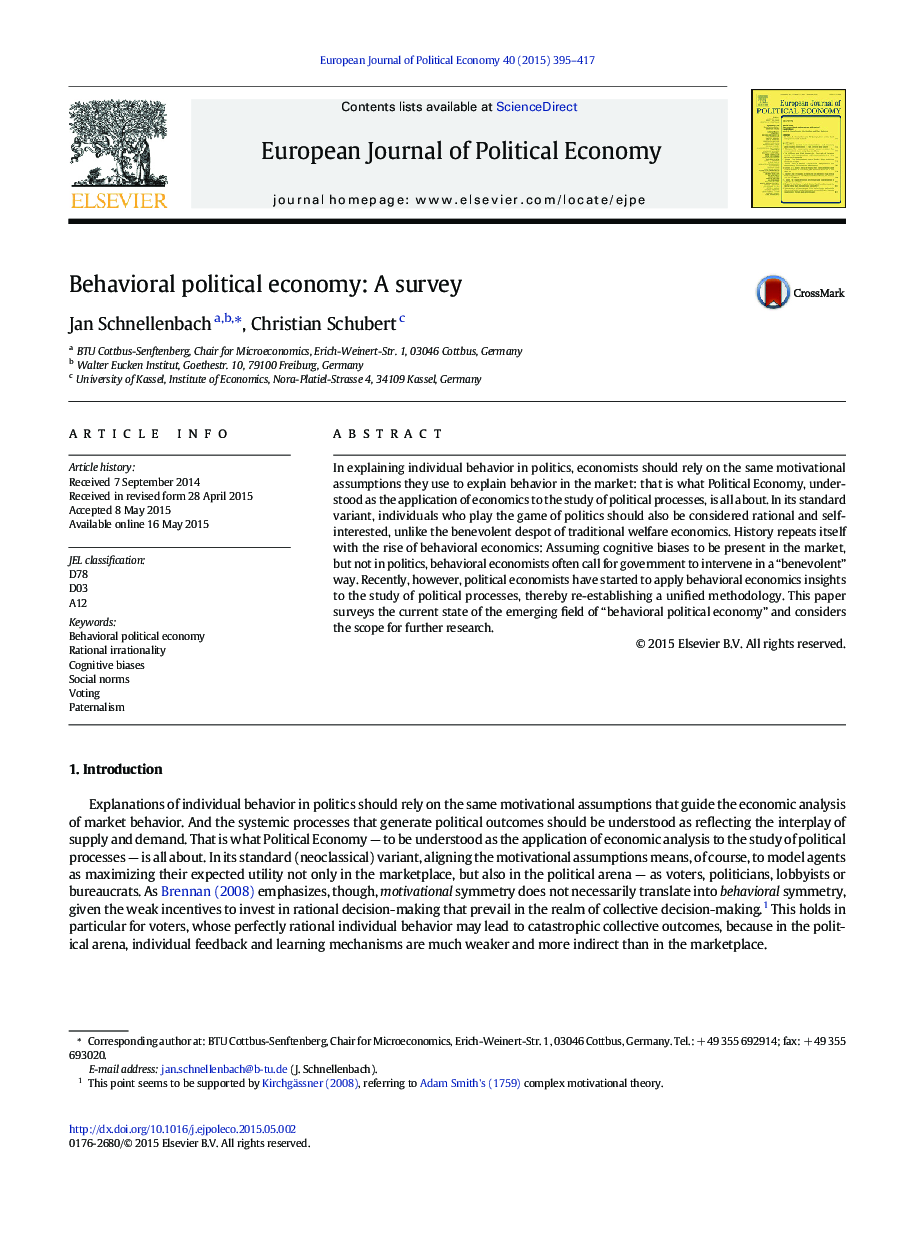| Article ID | Journal | Published Year | Pages | File Type |
|---|---|---|---|---|
| 5067903 | European Journal of Political Economy | 2015 | 23 Pages |
â¢We define and survey the field of behavioral political economy (BPE).â¢We distinguish between weak and strong versions of BPE.â¢We illustrate the application of behavioral economics to political economy using current research trends.â¢We trace the development of the new field from its historical roots until today.â¢We identify some promising avenues for future research in BPE.
In explaining individual behavior in politics, economists should rely on the same motivational assumptions they use to explain behavior in the market: that is what Political Economy, understood as the application of economics to the study of political processes, is all about. In its standard variant, individuals who play the game of politics should also be considered rational and self-interested, unlike the benevolent despot of traditional welfare economics. History repeats itself with the rise of behavioral economics: Assuming cognitive biases to be present in the market, but not in politics, behavioral economists often call for government to intervene in a “benevolent” way. Recently, however, political economists have started to apply behavioral economics insights to the study of political processes, thereby re-establishing a unified methodology. This paper surveys the current state of the emerging field of “behavioral political economy” and considers the scope for further research.
